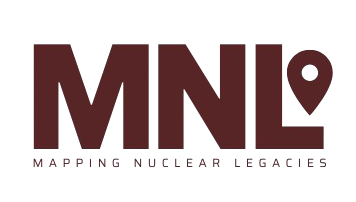Table of Contents
- Introduction
- News, and Other Relevant Links
- Related Organizations and Resources
- Featured Resolutions
Minneapolis’ citizens and government have been committed to promoting peace through activism and city diplomacy.
Minneapolis, the larger of Minnesota’s Twin Cities, has a long history of activism and participation in anti-nuclear movements. Anti-nuclear activism erupted there during the Cold War. Following construction of two nuclear power plants — Monticello Nuclear Generating Plant and Prairie Island Nuclear Plant in 1967 and 1968, respectively — protests against the reactors began due to the public’s concerns about their environmental and social impact. The Prairie Island Nuclear Plant is situated adjacent to the Prairie Island Indian Community, a reservation of the Dakota Oyate people, which prompted concern over the disproportionate negative impacts the nuclear industry would have on indigenous peoples. From 1968 until around 1990, the Honeywell Project, a Minneapolis-based peace group opposing the Honeywell cluster bomb manufacturer, was instrumental in anti-nuclear and anti-war activism, organizing peaceful protests and demonstrations against nuclear weapons for more than two decades. Among their four key demands was a call for “no components for nuclear weapons.” During the 1970s and 1980s, the Northern Sun Alliance, a coalition of anti-nuclear groups, worked with the slogan “Safe Energy – No Nukes.” Focusing on building awareness on nuclear issues, the Minneapolis-based collective primarily protested against the construction and use of nuclear plants, citing environmental and safety concerns. Additional national alliances, for example, the Nuclear Freeze Campaign and Women Strike For Peace, had active initiatives in Minneapolis as well. Since 1981, the Minneapolis-based peace nonprofit Women Against Military Madness (WAMM) has worked in opposition to U.S. involvement in war and systems of harm. WAMM has been pivotal in organizing anti-nuclear protests, film screenings, rallies, and other creative events to educate the public about militarism and promote peace.
Minneapolis and Hiroshima have a friendship city connection, maintained by Minneapolis-Hiroshima Friendship Cities, Inc., and established by Marj Wunder to participate in Hiroshima’s anti-nuclear and pro-peace activism. A friendship city relationship is less formal than a sister city one, but still serves to promote a meaningful bond between the cities. This relationship helps support the Lyndale Park Peace Garden in Minneapolis, constructed to honor peace between the U.S. and Japan. A main feature of the park is the Peace Garden Bridge, originally built in 1985 and rebuilt in 2009 by artist Kinji Akagawa and architect Jerry Allan. The bridge incorporates granite from Minneapolis, along with a peace stone from Hiroshima, gifted to peace activist Marj Wunder by the director of the Peace Memorial Museum during her second visit. This stone originates from an area near the hypocenter of the 1945 bombing. Additionally, the bridge includes a stone from Nagasaki, received later. Reflecting Japanese tradition, the bridge is constructed in a manner to prevent evil spirits from following people around the park. The garden often hosts events commemorating the bombing of Hiroshima, including tea ceremonies and readings.
Minneapolis’ citizens and government’s commitment to promoting peace has been critical to Minneapolis taking legislative action to formally call for nuclear disarmament. On Dec. 10, 2021, the Minneapolis City Council passed Resolution 2021R-40, endorsing the Treaty on the Prohibition of Nuclear Weapons (TPNW) and urging the United States to adopt the treaty and actively work toward nuclear war prevention. The resolution, introduced by council member Cam Gordon, was influenced by organizations such as Back From the Brink, Veterans for Peace, Women Against Military Madness, the Anti-War Committee, the Union of Concerned Scientists, and Physicians for Social Responsibility. The resolution explicitly expresses support for the Back From the Brink movement. This resolution comes after Minneapolis’ long-standing dedication to city activism.
News, and Other Relevant Links
On Hiroshima anniversary, Minneapolis says no to nuclear war
Fight Back! News (2022)
Readers Write: Nuclear weapons, city of Minneapolis structure, liberty, public safety
The Minnesota Star Tribune (2021)
Minneapolis protests U.S. wars, marks anniversaries of Hiroshima and Nagasaki
Fight Back! News (2023)
Related Organizations and Resources
Featured Resolutions
Public Meeting Summaries
RESOLUTIONS
Resolution 2021R-403: Supporting the “Back From the Brink” movement to prevent nuclear war
DECEMBER 10, 2021
Resolution 2021R-403 requests that the United States support the Treaty on the Prohibition of Nuclear Weapons (TPNW). The resolution was adopted after a unanimous vote by the 13 members of the Minneapolis City Council, with council member Cam Gordon leading the local initiative under counsel from Back From the Brink activists. On the councilor’s personal blog he credits the organizations Veterans for Peace, Woman Against Military Madness, the Antiwar Committee, the Union of Concerned Scientists, and Physicians for Social Responsibility as responsible for bringing his attention to this movement.
The resolution follows Back From the Brink’s template and explicitly expresses support for their movement. Consistent with similar legislation, the resolution highlights taxpayer burdens, the impact of the climate crisis, COVID-19, and recent racial justice uprisings as compelling reasons to shift focus toward disarmament. It also showcases endorsements from Back From the Brink and other municipalities that have passed similar resolutions. The resolution was first heard in the Policy and Government Oversight Committee, where it passed under twelve yeas and one absent vote, before advancing to the full City Council for adoption. City Council met online due to COVID-19 precautions, where the Policy and Government Oversight Committee presented 34 agenda items, all of which were unanimously approved under a roll call vote without discussion of the items including Resolution 2021R-403.
City Council Meeting Discussing Ordinance Resolution 2021R-403:
RESOLUTIONS
Memorial RC2021-05
FEBRUARY 13, 2021
Deacon Amy Blumenshine of Our Saviour’s Lutheran Church in Minneapolis authored Memorial RC2021-05, which calls on the Churchwide Assembly to participate in implementing the Treaty on the Prohibition of Nuclear Weapons. It also resolves for Evangelical Lutheran Church in America (ELCA)-related entities to divest from companies involved in nuclear weapons production. The memorial emphasizes the importance of diverting funds to other vital services, and highlights the multitude of harms associated with the development and use of nuclear weapons. The memorial draws upon two ELCA teaching statements, “Church in Society: a Lutheran Perspective” and “For Peace in God’s World.” These statements express the church’s commitment to play an active role in addressing societal moral issues, along with engaging in peace-promoting practices. “For Peace in God’s World,” an ELCA Social Statement, p. 18-19 is referenced as background documentation to support a resolution banning nuclear weapons. This statement calls for the control over and reduction of arms, in particular weapons of mass destruction. A 1960 ELCA statement that calls for the cessation of nuclear arms testing is referenced as further support, citing human health and security concerns. This statement regards ending nuclear testing as essential to gaining international control over the regulation of arms, acknowledging the impact of Cold War tensions on the arms race.

